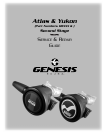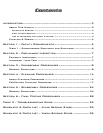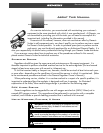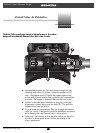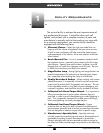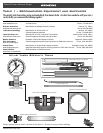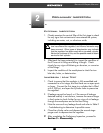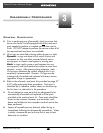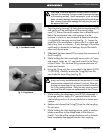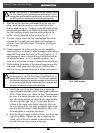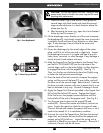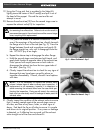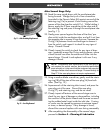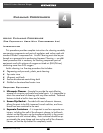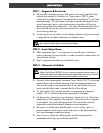
8
Copyright ©2001 Liberty Group
Atlas & Yukon Second Stage
Disassembly Procedures
s e c t i o n
3
s e c t i o n
Disassembly Procedures
General Guidelines
▼
Prior to performing any disassembly, check to ensure that
the service facility is well equipped with all the tools and
parts needed to perform a complete service from start to
finish. DO NOT attempt to perform the service unless all of
the required tools and parts are available.
▼
All o-rings are classified as being either dynamic or static.
Dynamic o-rings are those which sustain friction and
movement, as they are either mounted directly onto a
moving part, or create a seal against a moving part.
Static o-rings simply create a seal between two non-
moving parts, and are therefore less subject to wear than
dynamic o-rings. After passing close inspection, static
O-rings may sometimes be reused, although this is not
necessarily recommended. Dynamic O-rings must be
automatically discarded and replaced with every service,
regardless of age or appearance.
▼
Refer to the schematic and parts lists provided on page 37
& 39 while performing these procedures. Each part is
identified by its reference number shown on the drawing
the first time it is referred to in the procedure.
▼
Do not attempt to reuse parts that are designated to be
automatically discarded and replaced with the parts
provided in the overhaul parts kit. These parts should be
shown to the customer, however, to ensure their confi-
dence and satisfaction that complete overhaul service has
been performed.
▼
Inspect all reusable parts as directed, either during or
immediately following the disassembly procedures. When
in doubt, compare the part with one that is new to best
determine its condition.



